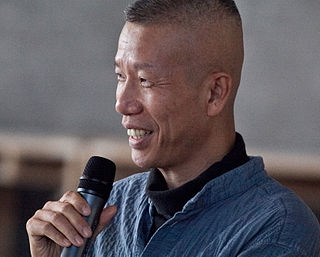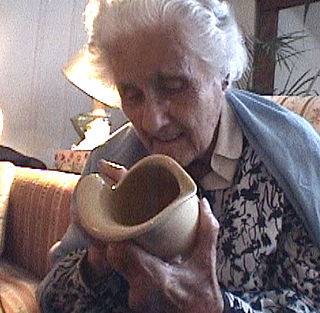A Quote by Freddie Gibbs
Gary is a really impoverished town; it's in industrial decay. There's low employment and things of that nature.
Quote Topics
Related Quotes
By enriching the carbon-dioxide content of the atmosphere from its impoverished pre-industrial levels, human beings have increased the productivity of the entire biosphere - so much so that roughly one out of every seven living things on the planet owes its existence to the marvelous improvement in nature that humans have effected.
For me it's really important that the work here displays an aesthetic of decay along with the sunken boat with the broken ceramic pieces. They form a unity in showing the power of destruction, the beauty of destruction, whether it's from nature - because the boat has sunk - or through other forces. It's really the beauty of decay and death that holds a power here.
Movement, change, light, growth and decay are the lifeblood of nature, the energies that I I try to tap through my work. I need the shock of touch, the resistance of place, materials and weather, the earth as my source. Nature is in a state of change and that change is the key to understanding. I want my art to be sensitive and alert to changes in material, season and weather. Each work grows, stays, decays. Process and decay are implicit. Transience in my work reflects what I find in nature.
Biomimicry is innovation inspired by nature. In a society accustomed to dominating or 'improving' nature, this respectful imitation is a radically new approach, a revolution really. Unlike the Industrial Revolution, the Biomimicry Revolution introduces an era based not on what we can extract from nature, but on what we can learn from her.
The legacy of women's war work is our present post-industrial employment structure. It was the war that created the demand for a technologically advanced, de-skilled, low-paid, non-unionized female workforce and paved the way for making part-time work the norm for married women now. A generation later, it was the daughters of wartime women workers who completed their mothers' campaign for equal pay.
That so many of us find it entirely plausible that a vast network of researchers and health officials and doctors worldwide would willfully harm children for money is evidence of what capitalism is really taking from us. Capitalism has already impoverished the working people who generate wealth for others. And capitalism has already impoverished us culturally, robbing unmarketable art of its value. But when we begin to see the pressures of capitalism as innate laws of human motivation, when we begin to believe that everyone is owned, then we are truly impoverished.


































